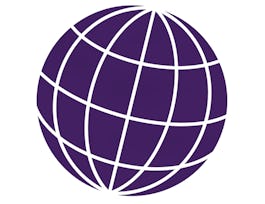In this course, learners develop a solid understanding of how national cultures shape international human resource management, international marketing, and international business generally. The course provides an overview of international culture, human resource management (HRM), and marketing. This may seem like a peculiar grouping of topics, but successful international HR management and marketing are highly dependent on national culture. Without understanding a people’s culture, managing and selling to those people is fraught. In the first module, the many determinants of national culture are explored as well as the dimensions or characteristics of a nation’s culture. In the next module, we review the various organizational structures appropriate for international business before turning to the HR challenges of managing a diverse population of international employees. In the final two modules, we explore the many challenges of international marketing across nations and across cultures.



International Business and Culture
This course is part of International Business Specialization

Instructor: Stephen R. Lawrence
Sponsored by Abu Dhabi National Oil Company
5,640 already enrolled
(97 reviews)
Recommended experience
What you'll learn
Interpret how a nation’s culture is formed from its history, language, and societal norms.
Evaluate the characteristics of a nation’s culture using Hofstede’s Cultural Dimensions analysis.
Apply and adapt standard marketing perspectives to international business-to-customer (B2C) markets and consumers.
Comprehend and deploy techniques for successful business-to-business (B2B) marketing.
Skills you'll gain
Details to know

Add to your LinkedIn profile
5 assignments
See how employees at top companies are mastering in-demand skills

Build your subject-matter expertise
- Learn new concepts from industry experts
- Gain a foundational understanding of a subject or tool
- Develop job-relevant skills with hands-on projects
- Earn a shareable career certificate


Earn a career certificate
Add this credential to your LinkedIn profile, resume, or CV
Share it on social media and in your performance review

There are 5 modules in this course
National cultures have a profound influence on the conduct of international business. The first lesson defines what we mean by “culture,” and then explore several of the many determinants of a national culture, such as language, communication styles, religion, social stratification patterns, and religion many determinants of culture. In the second lesson, we introduce six widely used dimensions of national culture, which are power distance, individualism, competitiveness, uncertainty avoidance, time orientation, and indulgence. Understanding these dimensions provides powerful insight into national cultures for international managers.
What's included
16 videos4 readings1 assignment2 discussion prompts
In this module we discuss the important topics of international organizational strategy and international human resource management (IHRM). Organizations are, of course, humans working together – individually, in teams, and in large organizations – toward common goals and objectives. Coordinating these efforts domestically is hard, but is even more so when working across borders, cultures, economic domains, and legal systems. In this module we will attempt to sort out some of important ways to manage the international aspects of this human complexity.
What's included
5 videos5 readings1 assignment
This module addresses the important topic of international marketing. We will see how standard marketing models such as the 3Cs, 4Ps, and segmentation are used in international settings, and how they help to define target markets, national marketing mix strategies, promotion strategies, branding strategies, and strategic international marketing strategies. Businesses cannot survive without customers, so understanding how international marketing differs from domestic marketing is paramount for successful international business management!
What's included
10 videos3 readings1 assignment1 discussion prompt
In this module we tackle the very important topic of international B2B marketing. Business-to-business (B2B) marketing addresses businesses selling to other businesses, rather than businesses selling directly to consumers (B2C). We argue that most cross-border trade is B2B and not B2C, so the study of B2B marketing is relevant for a most businesses engaged in international trade. We first define B2B commerce and demonstrate its inherent complexities. We next present the SAVE model of B2B marketing, which is a substitute for common B2C models. We conclude with an examination of factors important for successful international B2B marketing efforts.
What's included
3 videos3 readings1 assignment
What's included
1 assignment
Instructor

Offered by
Why people choose Coursera for their career




Learner reviews
97 reviews
- 5 stars
81.44%
- 4 stars
16.49%
- 3 stars
1.03%
- 2 stars
0%
- 1 star
1.03%
Showing 3 of 97
Reviewed on May 13, 2021
Quiz three has some error, if you want them to retain that information. Try the palace memory technique instead vary annoying trying to get wrong answer to get the point. lol
Reviewed on Nov 7, 2021
I can see all about the international business and culture.And its very widely known for me.Thank you so much.
Reviewed on May 6, 2023
I enjoyed the questions and answers session of the training. It was such an interactive session.
Recommended if you're interested in Business

University of Michigan

University of New Mexico

University of Colorado Boulder

University of London

Open new doors with Coursera Plus
Unlimited access to 10,000+ world-class courses, hands-on projects, and job-ready certificate programs - all included in your subscription
Advance your career with an online degree
Earn a degree from world-class universities - 100% online
Join over 3,400 global companies that choose Coursera for Business
Upskill your employees to excel in the digital economy


